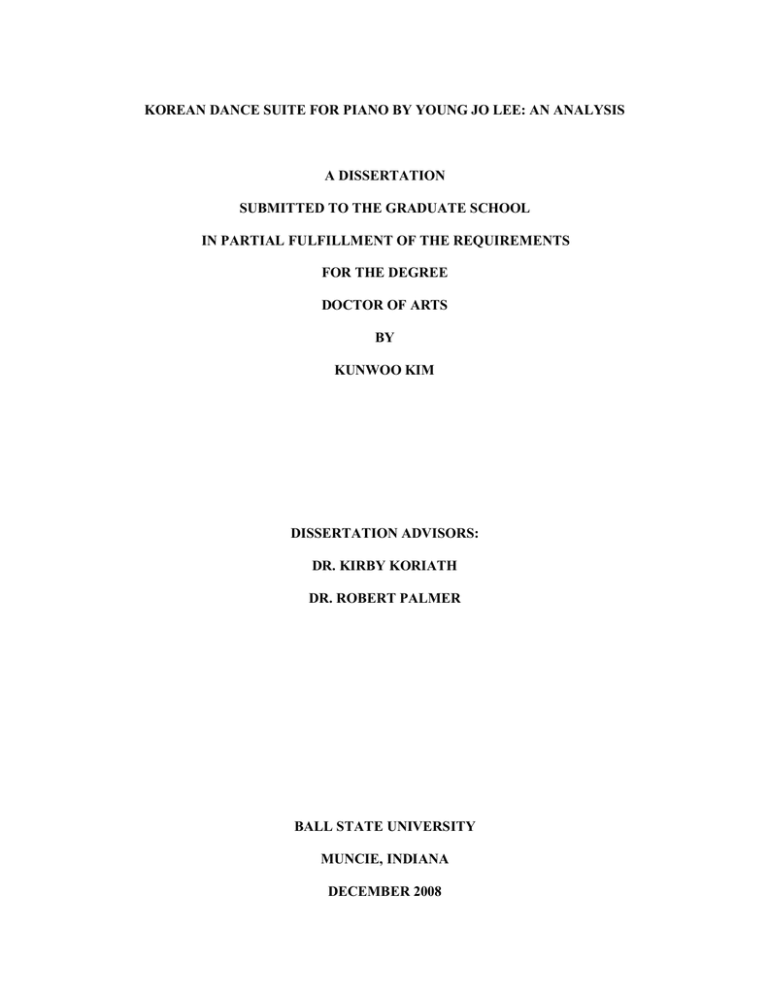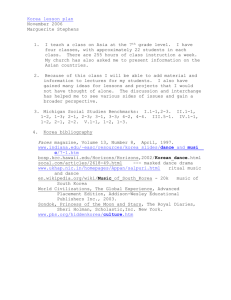KOREAN DANCE SUITE FOR PIANO BY YOUNG JO LEE: AN... A DISSERTATION SUBMITTED TO THE GRADUATE SCHOOL
advertisement

KOREAN DANCE SUITE FOR PIANO BY YOUNG JO LEE: AN ANALYSIS A DISSERTATION SUBMITTED TO THE GRADUATE SCHOOL IN PARTIAL FULFILLMENT OF THE REQUIREMENTS FOR THE DEGREE DOCTOR OF ARTS BY KUNWOO KIM DISSERTATION ADVISORS: DR. KIRBY KORIATH DR. ROBERT PALMER BALL STATE UNIVERSITY MUNCIE, INDIANA DECEMBER 2008 ABSTRACT Even though Western music appeared only about one hundred years ago in Korea, it was rapidly popularized in the country. Since the Korean War (1950-1953), South Korea embarked on a path of remarkable economic growth and political stability. The appreciation of Western music, too, grew quickly. Since the 1960s, many talented Korean composers have been recognized around the world. However, scholarly studies discussing their artistry and music are scarce in Western countries. Young Jo Lee, one of the leading composers in Korea today, has a growing reputation. Lee has been invited to many festivals, concerts, and conferences where his works have been staged internationally. A primary compositional feature of his music is the combination of Korean traditional musical gestures with Western compositional elements. The Korean Dance Suite, one of Young Jo Lee’s most important piano works, reveals Lee’s uniqueness as a national Korean composer. The study examines the Korean Dance Suite (“Heaven Dance,” “Children’s Dance,” “Lovers Dance,” “Buddhist Dance,” and “Peasant Dance”) for the features of Young Jo Lee’s innovative and dramatic sound elements. The purpose of this study is to analyze the pieces and to trace Lee’s borrowings from Korean traditional music as well as the ways in which he adapts them to Western musical ideas. This study helps performers create an accurate interpretation when presenting these pieces. In addition, these little-known works will benefit teachers and students in creating an expanded repertoire.




